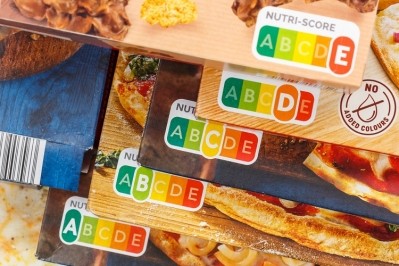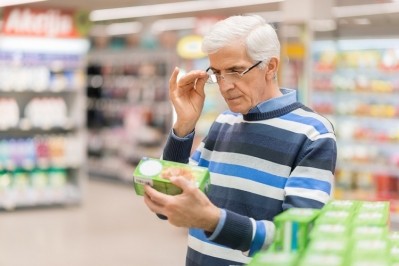Scientists rally behind Nutri-Score in response to scepticism in Spain: ‘These attacks are based on personal opinion, not science’

According to Spain’s Ministry of Consumer Affairs, nutrition labelling scheme Nutri-Score is due to rollout across the country in the first four months of 2021.
The scheme ranks food from -15 for the ‘healthiest’ products to +50 for those that are ‘less healthy’. Based on this score, the product receives a letter with a corresponding colour code: from dark green (A) to dark red (F).
However, since the Minister for Consumer Affairs Alberto Garzón first announced the impending rollout in mid-2020, ‘several campaigns’ discrediting the label have come to light in traditional and social media, said Professor Jordi Salas-Salvadó from Rovira I Virgili University’s Faculty of Medicine and Health Sciences in Spain.
“These attacks have nothing to do with constructive criticism aimed at proposing possible improvements to this tool, but correspond to opinions without scientific basis and judgement,” he told FoodNavigator.
“Maybe there is an interest for not implementing this tool, a similar situation happened with different nutritional profiles in other European countries.”
The case against Nutri-Score
In Spain, where Minister Garzón stressed implementing the labelling scheme will not be mandatory, Nutri-Score has indeed been criticised by food producers in the mainstream media.
The Spanish Olive Oil Interprofessional – which represents olive growers and cooperatives, industries, packers and exporters – claims that Nutri-Score gives olive oil a lower score than junk food.
Late last year, Spanish and Catalan daily newspaper La Vanguardia reported the non-profit’s concerns that Nutri-Score gives olive oil a ‘C’ ranking. “What is the consumer going to think of food, olive oils, that get a worse rating than other foods that are called junk food? We can generate enormous confusion,” said Spanish Olive Oil Interprofessional president Pedro Barato Triguero.
And this week, Madrid-headquartered Olimerca Magazine – a trade publication covering olive and vegetable oil news – reported that the Spanish Socialist Workers’ Party (PSOE) of Jaén had urged the Government to ensure its Nutri-Score rating for olive oils ‘recognise the healthy values of olive oil’ front of pack (FOP).
The news was posted on Twitter by the No-Nutriscore Alliance just yesterday.
The #PSOE has presented a motion in the Senate against the #Nutriscore, in which it urges the Government of #Spain to “guarantee” in this system a rating for #olive oils “that clearly contemplates their healthy effects” on #consumers.#NoNutriscorehttps://t.co/oEGSbKxVhM
— No-Nutriscore Alliance (@NoNutriscore) January 28, 2021
As Professor Salas-Salvadó rightly stated, Nutri-Score has also encountered pushback in other Member States. In Italy, for example, the FOP labelling scheme has been criticised for discriminating against foods that are traditional, single-ingredient, protected by geographical indications, or all of the above.
“We need to reset the debate and start over,” said Deputy Permanent Representative and Ambassador to Coreper I, Michele Quaroni, at a recent European Food Forum event. “What is happening today, is that single ingredient products and traditional, European quality products – which have been, for centuries, an integral part of the culinary tradition of each Member State – are in fact discriminated [against] in favour of industrial products that can be reformulated against indefinitely.”
Scientific and health professionals show support
In response to the growing number of media reports and posts criticising Nutri-Score, Professor Salas-Salvadó has launched a campaign together with colleague and dietitian-nutritionist Dr Nancy Babio.
So far, the campaign has been supported by scientists in the field of nutrition, endocrinology, paediatrics, public health, and epidemiology.
“The campaign has been organised because there are several campaigns discrediting the Nutri-Score FOP label in the media and social media,” said Professor Salas-Salvadó. “So with the support of more than 80 scientists and health professionals, we want to demonstrate that this tool could be very helpful in empowering the consumer.”
The signatories state they want to remind both consumers and professionals that Nutri-Score is based on science, and that evidence shows it is more effective than other existing logos on the market.
“Despite its imperfections and limitations – such as those of any nutritional logo and any public health tool – scientific studies show that Nutri-Score is well perceived by consumers, well understood to allow for the comparison of nutritional quality, and is easy to use,” noted the campaign.
“But above all, Nutri-Score has shown in real conditions, its ability to favourably influence, from a nutritional point of view, consumer food choices.”
The signatories stressed that the implementation of Nutri-Score should be accompanied by explanations on both how to use it and how it complements other public health recommendations. And finally, that FOP labelling is just one aspect of a public health nutritional policy, and should be integrated into a ‘whole series’ of strategies promoting healthy and sustainable environments.
Professor Salas-Salvadó told this publication he hopes that by rallying behind Nutri-Score, the FOP label can be supported in Spain to help improve public health.
“The main goal of the Nutri-Score FOP label is to provide consumers with nutritional information that can help to guide their choices towards better quality foods while encouraging manufacturers to improve the nutritional quality of their products.
“We hope that with this campaign, Nutri-Score could facilitate access to foods of better nutritional quality, as well as healthier and less obesogenic environments. This would be a public health strategy, but it should be framed in a series of regulatory measures [that restrict] advertising aimed at minors, [and enforce] taxes or food subsidies.”

































